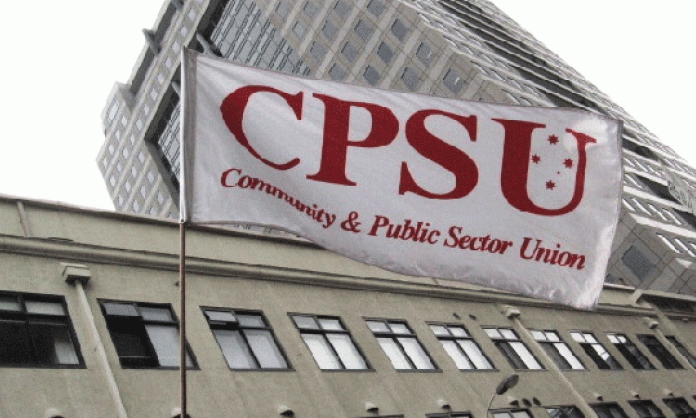Federal public sector workers have started striking as part of enterprise agreement bargaining. On 20 May, union members from the Environment Department, Geoscience Australia and the Australian Institute of Criminology held a one-hour stoppage to join members from the National Library, Archives and other nearby agencies on flex-leave at a meeting of around 200 people.
A motion moved by the Community and Public Sector Union (CPSU) condemned the government’s bargaining policy, which requires agencies to cut pay and conditions. It committed to public sector-wide stoppages in July and workers handing out flyers to clients detailing the government’s attacks. Beth Vincent-Pietsch, deputy secretary of the CPSU, pointed out that the Abbott government’s pay offers of less than 1 percent, on average, are well below wage increases being won in the private sector.
The action was one of a series of short stoppages staggered across a number of agencies over a two-week period, including at the ATO, Department of Human Services, Agriculture, Bureau of Meteorology, Employment, and Veterans’ Affairs. It was reported that management at the Bureau of Meteorology resorted to directing commercial radio stations to keep BOM staff off the air during planned protest days because of concerns that workers would read out statements about their industrial action while delivering weather updates.
One-hour rolling strikes are a slow start to an industrial campaign that the union has been talking about for months. It is almost a year since most public servants’ enterprise agreements expired.
The appalling offers being put to staff are the logical and predictable outcome of the government’s bargaining policy, which has been public since March 2014. The shift to cross-agency stop-work meetings in June is positive, but a long way off the sustained cross-agency strikes that will be needed to protect public servants’ real wages and conditions.










